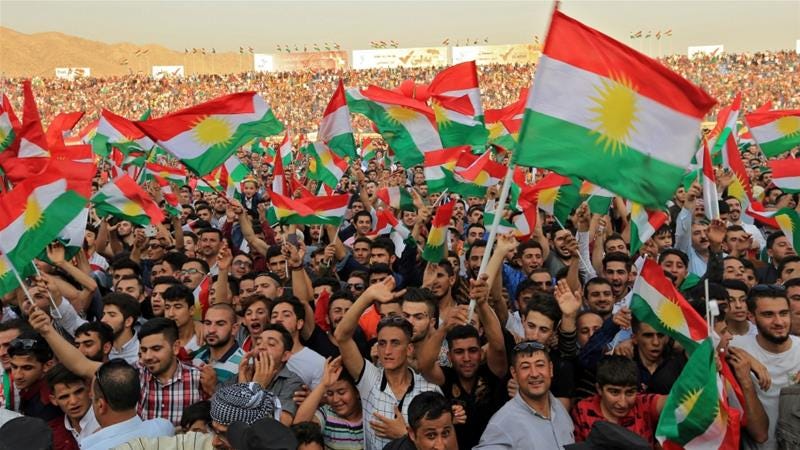The Question of a Nation
The Kurds; World’s Largest Ethnic Group Without A State

The Kurds, despite having a population of 25 to 35 million and being the fourth largest ethnic grouping the middle-east, are not a majority in any state and are distributed mainly over Turkey, Syria, Iran, Iraq and Armenia, with none of the nations willing to give up territory for the formation of a Kurdish state. The Kurds are mostly Sunni Muslims and do not identify themselves as Arabs. These people have been struggling for an independent Kurdish state, which they call ‘Kurdistan’ for over a century, yet unlike the somewhat similar Israel-Palestine, there were no attempts towards a peaceful solution by the UN.
The Kurdish demands have been raised ever since the collapse of the Ottoman Empire and the signing of the Sykes-Picot Agreement. A prospective Kurdish state was first mentioned in the Treaty of Sèvres, which was proposed by the Allied powers and aimed at the fragmentation of Ottoman Turkey to obstruct its resurgence. When the Turkish leader, Mustafa Kemal Atatürk, rose to power, he renegotiated the deal with the allied forces and the Treaty of Lausanne was adopted, one which did not contain a state for the Kurds. This ended the conflict and defined the borders of the modern Turkish Republic.

The Kurds often find themselves trapped amidst the perpetual middle eastern conflicts. On 16th March 1988, during the Iran- Iraq War, chemical weapons such as mustard and nerve gas were dropped on the Kurdish city of Halabja by Saddam Hussein’s regime, killing more than 5,000 civilians and injuring 10,000 more. This is one of the countless acts of oppression committed against the Kurds. Other examples include the ceasing of citizenship from the Syrian Kurds after the Hasakah Census. This census identified the separatists among the population and divided them into two categories; the Ajanibs(partial rights) and the Maktumeens(no rights). The Kurdish language was till recently banned in these countries and the Kurds were forbidden from propagating their culture. Turkey, for example, does not recognize the Kurds as a separate ethnic group classifies them as “Mountain Turks” further undermining their demands for a Kurdish state. There have been multiple propositions by these nations of using the Kurds as a buffer, also called “safe zone” and “Arab cordon”, between Turkey and Syria. The invasion of Kurdish occupied cities and discrimination and repression with the arbitrary killing of the Kurds has been common.
In the last decade, Arab-Kurdish relations have substantially improved. The Kurdish language and culture are getting recognition, Bashar Al Assad is providing citizenship to most Kurds that lost it after the Hasakah Census in 1962 and a halt in the repression of the Kurds are some of the historic events that took place during this time. Some of the nations also agreed to provide a level of autonomy to the Kurds in regions such as Rojava in Syria, despite being against the idea of complete independence.
Today, the Kurdish people have more autonomy than ever before in history, yet it’s a long way from what they have been striving for and the need for a UN resolution to solve the crisis is at its all-time high.
